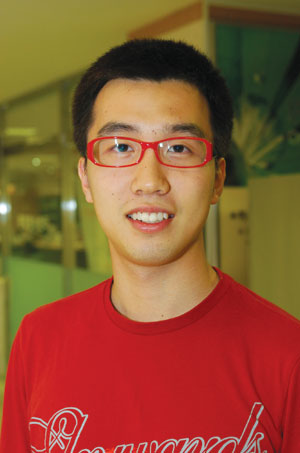
Jae-Mo Choi
Sophomore, College of Commerce & Economics
Korea has had a lineage system since ancient times. The country went through Japan's colonial rule from 1910 to 1945, when a few universities were founded. Now these universities are very powerful they have succeeded the ancient system. People who graduate from these 'few' universities, often hold important posts in our society. They acknowledge and help each other, giving each other special treatment and consideration. We call this phenomenon 'Diplomaism'.
Those who have had good schooling are appointed to the country's most important jobs and 'Diplomaism' is getting more deeply rooted. It leads to 'educational fever' and the 'ranking' of universities. We can even watch this phenomenon in the TV drama 'Overtaking Gang-Nam Mother,' which shows the seriousness of Korea's 'Diplomaism' and its influence on children. The Daewoo Group conglomerate was dishonored in 1999 when its human-resource department was found to be practicing 'Diplomaism' by favoring people who had graduated from certain universities.
Nowadays, in Korea, there are a growing number of cases, highlighted in the mass media, of people forging school diplomas to short-circuit 'Diplomaism'. In some sectors of society, however, people who have had little formal schooling such as Singer Seo Tai-ji, Movie Director Im Gwon-taek, and Soccer Coach Kim Ho are being acknowledged on the basis of their own talent and abilities.
In America, big-name universities have great influence in society, but many developed countries have laws which limit 'Diplomaism,' racism, and other inequalities. In Korea, however, there seems to be less control of the phenomenon of the monopoly of the few.
How can Koreans overcome 'Diplomaism'? First, we need to stop the ranking of universities. Although the practice benefits competition, it breeds a vicious circle of distinction.
Second, Koreans and Korean conglomerates need to change their attitudes about academic backgrounds. For example, the Korean conglomerates Samsung and Miraeasset are open-minded about employees' schooling. They operate merit-systems which value real ability over academic titles. Korea should also design new personnel management systems, like America's, which are able to rate people on the basis of their abilities and the results of their work. The U.S. also has laws for engaging employees on the basis of ability.
Korea is in 'Diplomaism-crisis.' We have to stop evaluating people on the basis of their schooling. If we develop our abilities, we should be acknowledged by Korean society.


